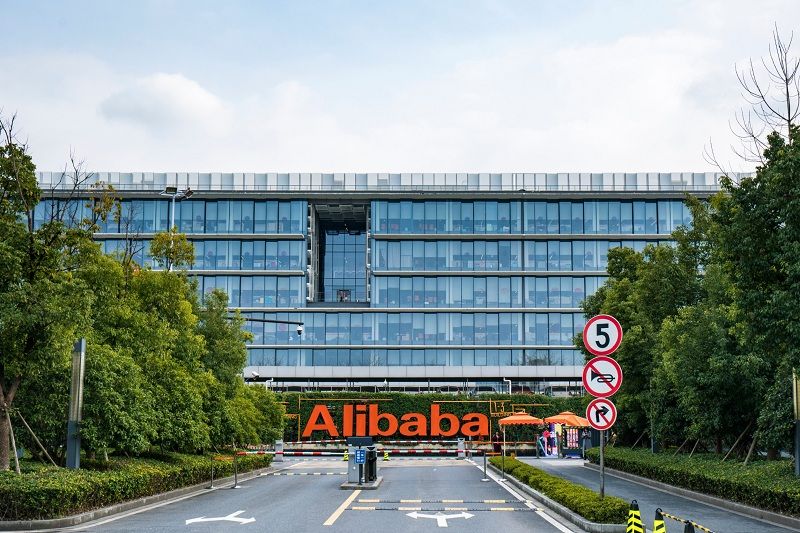Alibaba Group (BABA) stock price has done well, helped by the recent easing of regulations and the recently announced stimulus package by the government and the central bank. It rose to a high of $117.7 on September 26, up by over 65% from its lowest point this year. This surge has pushed its market cap to over $250 billion.
Recently, however, the stock has pared back some of those gains as the stimulus hype starts fading.
China stimulus and regulations
Alibaba, PDD Holdings, and JD.com stocks have surged recently, helped by the change in tune by Beijing and its regulators.
During the weekend, the finance minister hinted that the government was prepared to deliver more stimulus, including by expanding the budget deficit.
Officials also hinted that they would continue supporting technology companies as they intensify their competition with their global peers.
On top of this, the People’s Bank of China (PBoC) has reduced interest rates to zero and lowered bank reserve ratios, a move that will unlock billions of dollars in capital. As with Japan, officials are also working to stimulate the stock market by promoting share buybacks.
Therefore, analysts at Goldman Sachs have updated their outlook for the Chinese economy. They now expect the growth to be 4.9%, higher than the previous 4.7%. Also, analysts expect that economic growth will continue growing in the coming year.
Alibaba stock price has also jumped after the company completed a three-year rectification process for its monopolistic behavior. It has done that under the supervision of the State Administration for Market Regulation (SAMR).
Alibaba’s business faces major headwinds
Despite all this progress, the company faces major challenges as its key businesses face substantial competition, and as most people in China prioritise reducing their debt.
Like Amazon, Alibaba has invested in cloud computing, which it hopes will become a major part of its business.
Amazon’s AWS has been its most important brand in the past few years. It has had strong revenue and profitability growth, which has helped it to offset weakness in its low-margin retail business.
Alibaba’s cloud business faces two major challenges. First, it is competing with other richly valued companies like Tencent and Huawei.
Second, the company’s cloud computing business is constrained mostly to the Chinese market since western brands dominate the top markets in Europe, Asia, and North America.
Therefore, data shows that Alibaba Cloud has maintained a 4% market share in the past few years. It remains below Amazon AWS, Microsoft Azure, and Google Cloud.
Alibaba’s growth has slowed
The most recent financial results shows that Alibaba’s growth has stalled. Its revenue rose by 4% to $33.47 billion in the quarter to June 30th. In the same period, Amazon’s revenue increased by 10% to $148 billion, helped by the AWS segment, which rose by 19% to $26 billion. Alibaba Cloud’s revenue rose by 6% to $3.6 billion.
The rising costs have also made Alibaba’s business to be less profitable. Its net income dropped by 27% to $3.36 billion, while Amazon’s net income jumped to $13.5 billion, from $6.7 billion in the same period last year.
Therefore, the management is banking on the ongoing interest rate cuts globally to fuel its growth.
It is also hoping that its substantial share repurchases will help to boost its growth in the long term. In the US, it reduced its share count to 19 billion shares outstanding, a drop of 445 million from March.
Alibaba is still one of the cheapest brands in the US. It has a forward P/E ratio of 17.4, lower than the industry median of 18.7. On a non-GAAP basis, the trailing and forward P/E ratios stands at 12.
Most analysts are upbeat about the Alibaba stock price. Data by Yahoo Finance shows that 47 of the 48 analysts tracking the company have a buy rating. The average estimate is $117, higher than the current $107.8. The most optimistic are analysts from Barclays, Baird, and JPMorgan, while Macquarie recently upgraded the stock from neutral to outperform.
Alibaba stock price analysis
The daily chart shows that the BABA stock price surged,and reached a high of $117.10 earlier this month and then pulled back to $102.47. This rebound is in line with my last BABA forecast, which you can read here and here.
Its highest level this month was an important price because it coincided with the highest point in January last year.
The stock remains above the 50-day and 100-day moving averages. It has also remained above the important support level at $100.
Also, it has formed a cup and handle pattern on the weekly chart. Therefore, the stock will likely bounce back in the long term and retest the key resistance point at $125.
The post Alibaba stock forecast: is BABA a good buy now? appeared first on Invezz

